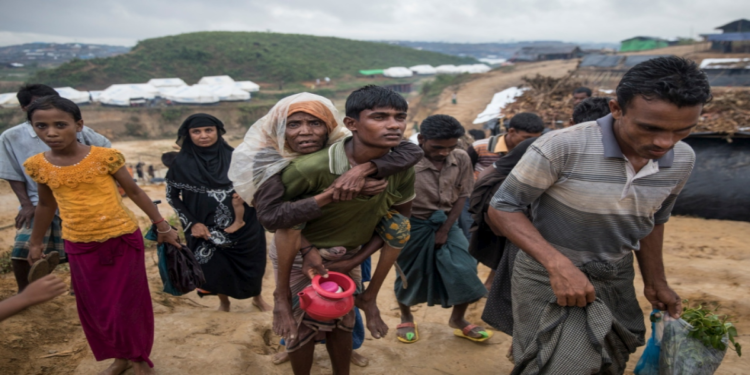
By Susan Kendi
The International Criminal Court has ruled that it may exercise jurisdiction over the alleged deportation of the Rohingya people from Myanmar to Bangladesh.
Judges voted 2-1 to exercise jurisdiction over the Rohingya crisis, in a 50-page decision which observed that there were two separate crimes — deportation and forcible transfer of people.
The judges explained that, although Myanmar is not a state party of the Rome Statute, deportation begins in a non-state party by use of force or threats and completed by crossing a border into a state that is a treaty signatory, Bangladesh.
Judges Péter Kovács and Reine Adélaïde Sophie Alapini-Gansou formed the majority while Judge Marc Perrin de Brichambaut partly disagreed arguing that the proper procedure was not followed in seeking the court’s advisory opinion. The prosecutor is required to seek the court’s permission to conduct an investigation on a matter. Moreover, the court is not allowed to advise the parties on how to apply the law.
Judge de Brichambaut added that the court cannot rule on its own authority over the alleged deportation of the Rohingya people at this stage. Prosecutor Fatou Bensouda sought the court’s decision on whether it had jurisdiction after receiving and reviewing 42 individual communications, reports and pieces of public information on the crimes committed on the Rohingya people. The majority decision allows Bensouda to proceed with her analysis of the facts and decide whether to request the court’s permission to investigate.
Myanmar has not submitted any observations before the Court despite the judges’ invitation. On April 13, 2018, the Government of Myanmar stressed in a statement that it was not a party to the Rome Statute, adding: “Nowhere in the ICC charter does it say that the court has jurisdiction over states which have not accepted that jurisdiction. The UN Vienna Convention on international treaties states that no treaty can be imposed on a country that has not ratified it.”
On August 9, 2018, the Myanmar government refused to respond to the prosecutor’s request highlighting several concerns such as bad faith, irregularities on procedure and the lack of fairness and transparency on the litigation process.
Fact box
On April 9, 2018, the Prosecutor made a submission requesting a ruling on whether the Court may exercise jurisdiction over the alleged deportation of the Rohingya people from Myanmar to Bangladesh.
The president of the Pre-Trial Division assigned the request to the chamber, which invited on May 7, 2018, the competent authorities of Bangladesh to submit written observations by June 11, 2018, on the Prosecutor’s request, which they did.
The chamber allowed certain individuals and organisations to submit their amici curiae observations on the request between May 29 to June 14, 2018.
Reports reviewed by the prosecution reveal that since August 2017 over 670,000 Rohingya living in Myanmar have been deported across the international border into Bangladesh.
The UN High Commissioner for Human Rights described the Rohingya crisis as “a textbook example of ethnic cleansing”, and according to the UN Special Envoy for human rights in Myanmar, potentially bears the “hallmarks of a genocide.”
Although such crimes have been reported since at least 2012, they rose on August 25, 2017, to a new level when there was a commencement of a “clearance operation” aimed at deporting all remaining Rohingya across the border to Bangladesh and continued at this scale for several months.
Myanmar security forces collaborated with other individuals and attacked the Rohingya population in particular in Rakhine State in a “well-organised, coordinated and systematic” way intended to drive the Rohingya population out of the country.
These attacks allegedly included killings, rape, torture, and enforced disappearances affecting thousands of victims. They also allegedly included the destruction and looting of hundreds of villages, as well as livestock, crops and other personal property. The perpetrators seem to have targeted in particular people and objects representing the cultural and religious identity of the Rohingya.
The Rohingya minority has suffered years of persecution within Myanmar, and during that time they have been increasingly deprived of various fundamental rights, including eventually being stripped of their Myanmar citizenship.







